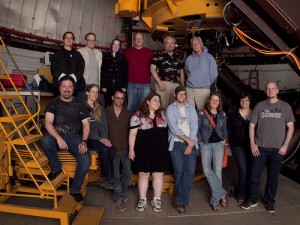A front-page article in the Washington Post yesterday asserted that U.S. dominance in space is slipping, with lots of examples to prove the point: the recently launched Japanese lunar orbiter, the upcoming Chinese space walk, Israel’s nanosatellites, etc. But the article, which draws from a study undertaken by Bethesda, MD consultants Futron, is a somewhat awkward pastiche of two separate trends. On the one hand, it’s to be expected that the lead of the U.S. would decline in relative terms, as more and more nations get in on the act. It’s a little like the initial wave of industrialization: first Britain built its factories, but other nations were quick to follow suit, a development that Britain could do little about. Indeed, more nations getting into space in a robust way is a good thing, and should be welcomed as such.
But, on the other hand . . . the U.S. space program really is floundering, in absolute terms. Yes, the nation remains ahead of the competition, as can be seen in Futron’s space competitive index, published in The Economist. But the Shuttle gets retired in 2010, and then we’ve got a five year gap during which no American spaceship will be able to reach the International Space Station. Paying the Russians to take us there will be our only option, until the Constellation comes online five years later.
Or never. Which is an increasing risk at this point. We’re obviously heading into an era of ever-tighter budgets, and NASA’s programs tend to be one of the first things to get cut. All the more so given that the U.S. public could give two shits about what happens after the Shuttle. Or, for that matter, the Shuttle itself. Hell, the only way it can make the news anymore is as flaming wreckage.
Which is what makes the post-Shuttle plans such a total pull-your-hair-out-while-you-bash-your-head-into-a-wall missed opportunity. NASA had a big chance to get people’s attention again, and all they could come up with is something that looks to the average American suspiciously like a repeat of Apollo (only more expensive, with both earth AND lunar orbit rendezvous). They’d have been far better advised to head to Mars, or start mining asteroids . . . or anything besides something that everybody in this country knows Tom Hanks has already done. As Bob Mahoney argued so cogently in The Space Review earlier in the year, when it comes to PR, NASA really blew it. Again.
But not everybody has lost the plot. While NASA lurches toward the budget axe, the Pentagon keeps on trucking. Because one of the areas where the U.S. still remains unchallenged in space is with regards to military hardware: we’ve got as many satellites in orbit as all other nations combined. Without those sats, the ultra-precise weaponry of the U.S. war machine would be reduced to near-uselessness. And if anyone ever gets into a position to challenge those sats . . .
And that, as I’ve argued before (and as the Post article implicitly underscores), is likely to be the dynamic that ultimately shifts this whole equation. Ultimately, the only REAL reason America ever came up with for getting into space in a serious way is because the other guy was doing it. Sputnik got us off our butts in the 1950s/60s, and I suspect that something similar is going to happen again. Put it this way: the Moon will be a LOT more interesting to the American public when the Chinese start walking around on it. Which won’t happen for a while yet. But there’s an awful lot that they and others can get up to in the meantime.





